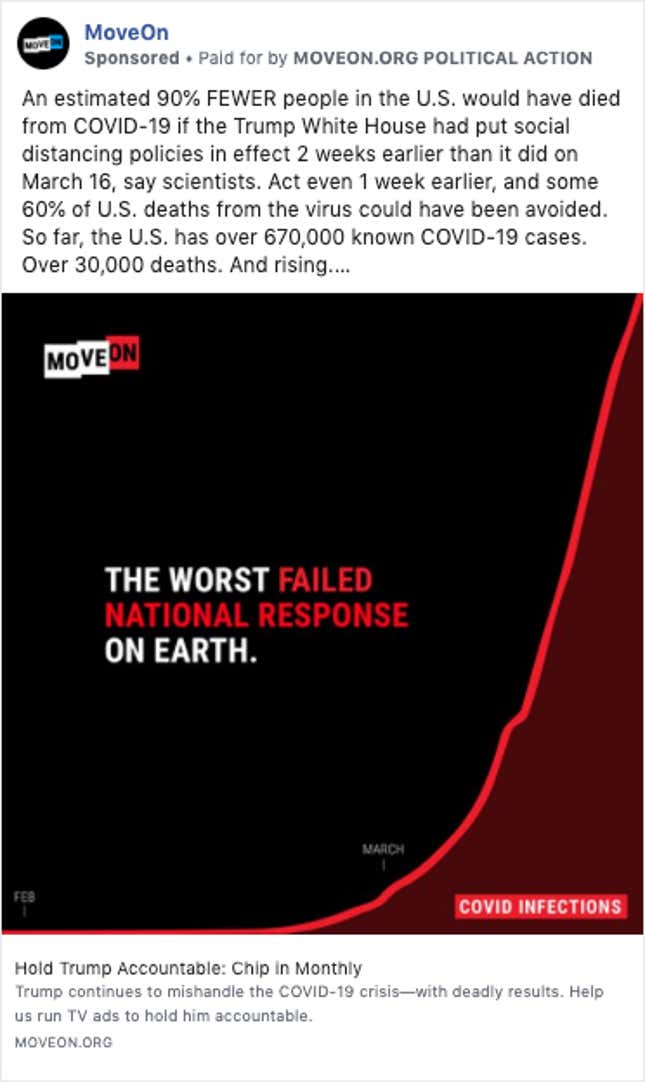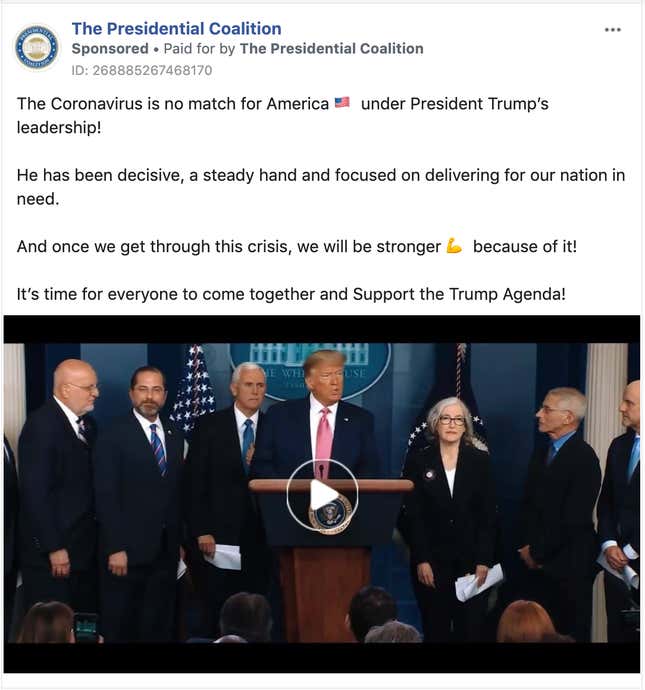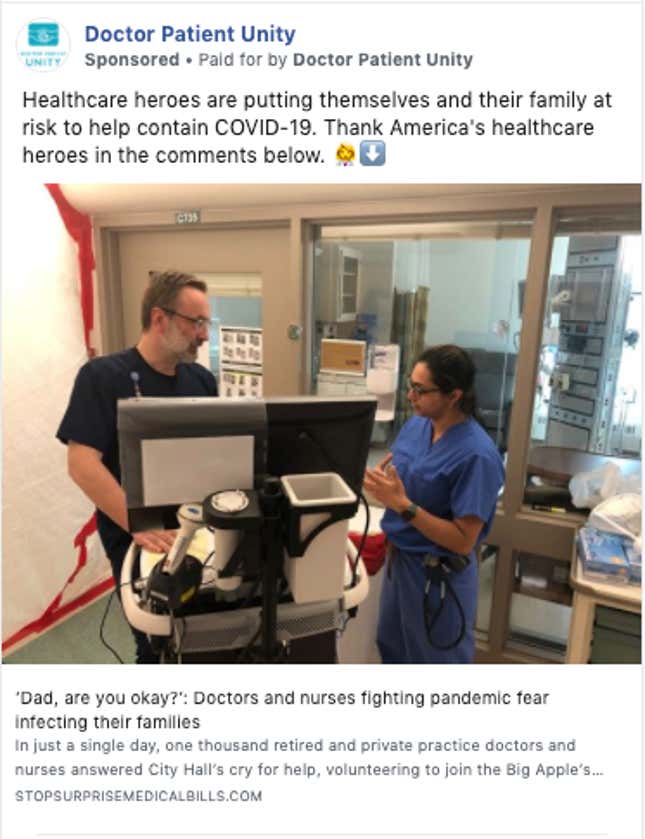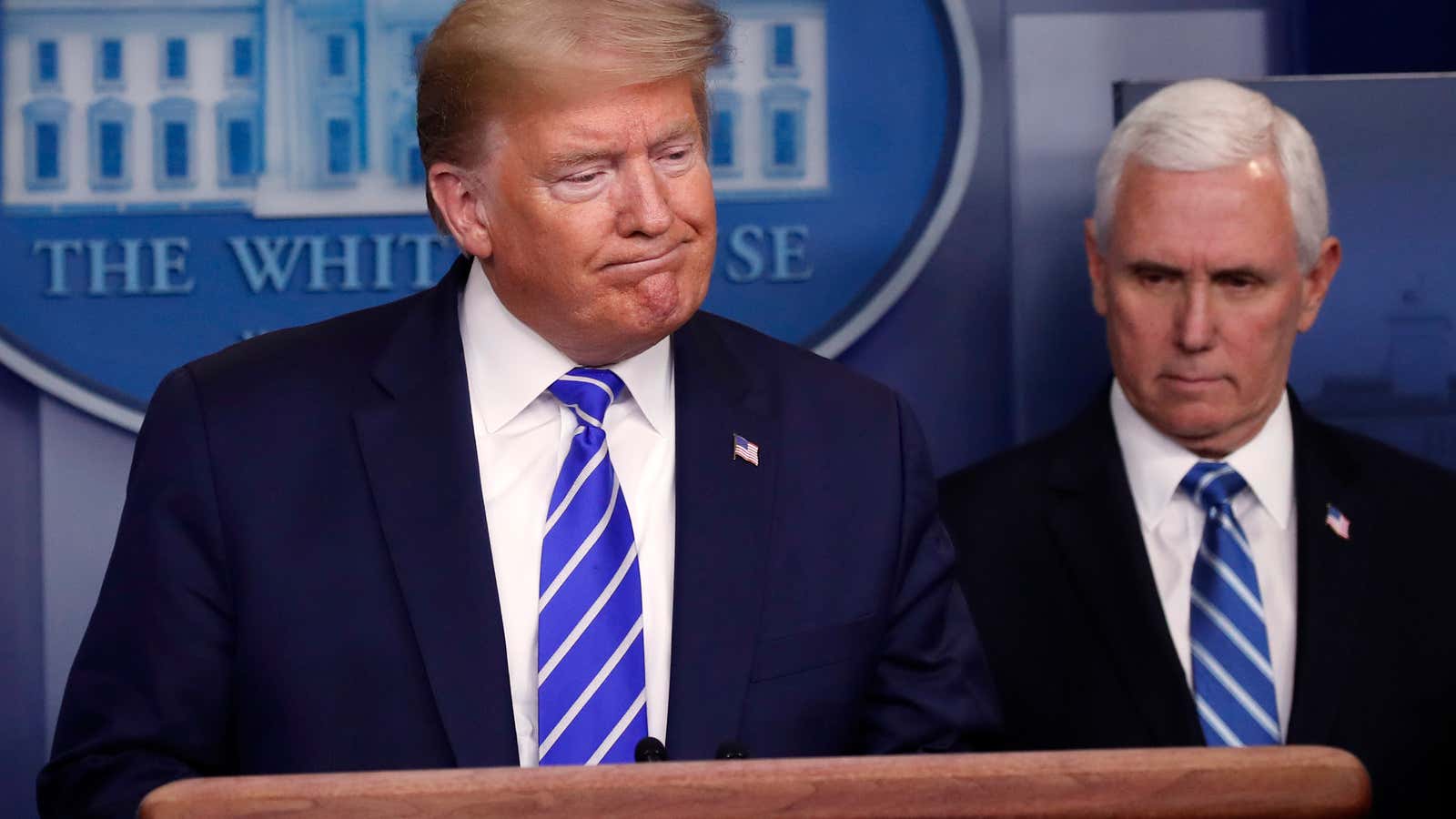Political groups in the US haven’t let the pandemic stop them from pushing the view of the crisis that will achieve their goals. Democrats, in particular, see an opportunity.
Democrats are spending far more than Republicans on this issue, about 10 times as much.
But what is each group focusing on?
We made a computer read every political ad on Facebook about the pandemic from the past month to find out how each side is viewing it. The computer highlighted the words that Democrats, Republicans and healthcare industry groups use disproportionately in their ads compared to the rest using an algorithm called TF-IDF.
What this means all depends on your point of view: The crisis reinforces the point the good guys have been making for years. The bad guys are cravenly trying to take advantage of a crisis for political gain.
Here are some of the top 30 terms that the computer highlighted from ads from political advertisers from each group.
Democrats: The disease is deadly and Donald Trump screwed up
Most distinctive words and phrases in ads from liberal groups:
Donald Trump
response
deadly
petition
lives
Democrats have focused on the Trump administration’s response and consequences of the disease—that it’s deadly and has cost lives.

Some Democratic groups began to focus on the failures of the Trump administration’s response as early as February—and one Democratic Party-linked news organization is spending hundreds of thousands of dollars to push news stories about the failures to swing state voters.
Other ads have asked Facebook users to sign a petition—a time-honored tactic for collecting email addresses one can later use to ask for money—for instance, in hopes of saving the job of Dr. Anthony Fauci, the infection-disease expert helping lead the response with whom Trump has expressed some dissatisfaction.
Republicans: Our nation will get through this, thanks to President Trump
Most distinctive words and phrases in ads from conservative groups:
our nation
community
stronger
💪
President Trump
Republican groups are trying to emphasize that we—our nation, our community—are all in this together—and that we’ll come out stronger 💪 . This sort of unity is an explicit goal of an recently-announced plan to fly the Navy’s Blue Angels jets over American cities.

Crises can erase partisan divisions—leading to polls showing increased support for the president—so often that it’s called the “rally ‘round the flag effect.” Polls have shown a small bump for Trump.
And you’ll notice—as the computer did—that Republicans talk about “President Trump” 2.5 times as often as Democrats do. (Democrats prefer “Donald Trump.”)
Healthcare industry: We employ doctors who will find a solution
Most distinctive words and phrases in ads from healthcare industry groups:
beat
infected
treatments
vaccines
research
trials
committed
coming together
heroes
health care professionals
The healthcare and pharmaceutical industries are the least popular in America, according to Gallup. So it’s no surprise they are seizing the opportunity to boost their popularity by reminding Americans that they really are saving lives by providing care doing research to find vaccines and treatments to beat the coronavirus.
Of course, the front-line health care professionals themselves aren’t the ones paying for the ads. It’s their employers—sometimes employers who aren’t very popular with the actual doctors and nurses, like for-profit staffing companies that, ProPublica reports, cut doctors’ pay. The ads run under the organization name “Doctor Patient Unity,” which is funded by two staffing companies, TeamHealth and Envision Healthcare, both of which are backed by private equity companies.

The coronavirus-related ads from the group link to a website that advocates for a solution to surprise medical billing that would involve insurance companies paying more to those staffing companies.
Their motivations add some interesting color to the fact that lobbying groups are more likely than any other group Quartz analyzed to call healthcare providers heroes.
